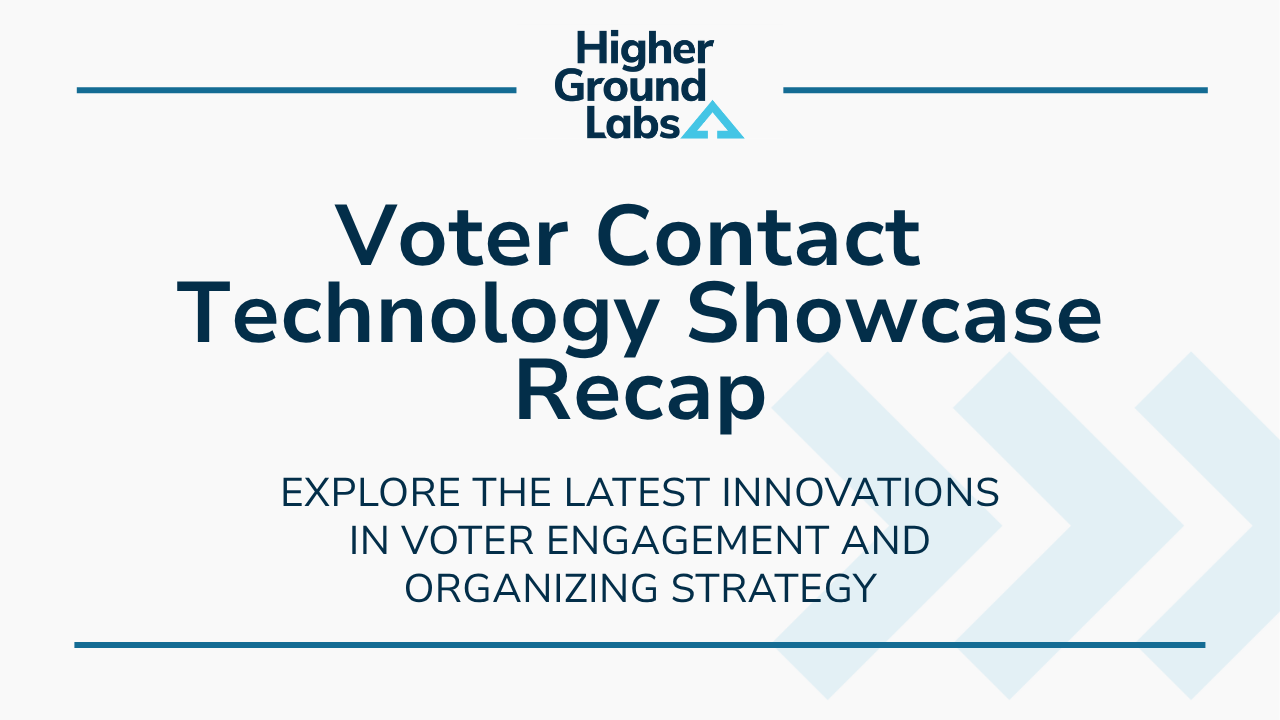In 2018, Democratic campaign committees, local campaigns, and outside groups invested in new relational tools to impact midterm election outcomes in some of the tightest races across the country.
The theory behind these tools and programs is a timeless organizing principle: a person is most likely to change behavior if asked by someone they already know and trust. The mechanics are simple: supporters tap into their own contact lists to text friends, solicit donations, or share beneficial media coverage. On the backend, campaigns now capture the insights and energy that arise from these interactions. According the New Data Project’s follow up report from 2018, digital outreach through their relational app was 20 times more effective than stranger-to-stranger GOTV tactics like phone banking. Social pressure remains the most effective tool we have for persuasion and mobilization. This same theory supports the house meeting model that has anchored field programs since 2004. Relational tools extend this model to digital networks, reflecting the way people connect with one another today.
While 2018 saw great improvements in these tools, we still saw very low adoption rates across the available platforms. Only the most highly engaged volunteers across the country leveraged their networks to turn people out to vote or volunteer. This suggests that the barrier to participate through relational organizing apps is still too high. According to research from the Analyst Institute and findings from a January 2019 presentation from New Data Project, the existing user base is also whiter and more affluent than the majority of the voters campaigns are looking to reach, consistent with the demographics of our volunteer base across the country. Research also shows that effects are the greatest with young voters, low propensity voters, and voters of color. This mismatch of volunteers and intended audience must be addressed in the 2020 cycle.
At Higher Ground Labs, we believe strongly in the power of relational organizing and the role these new tech platforms can play. Engaging new and lapsed voters is the key to defeating Trump in 2020. We know that relational organizing works – and could move critical votes in key communities if done at scale. This is the time to invest in relational programs and continue to optimize towards better adoption rates and effective outreach.
We are prepared to invest most aggressively behind teams that are running hardest at expanding the number of people who are touched through relational outreach. Specifically, we are looking for plans to do the following:
- Lower the barrier to engagement for people to leverage their networks
- Imbed most effectively into campaign organizing programs
- Increase the number of people using the platform on any given campaign
- A/B test and measure constantly
- Improve the total number of contacts each volunteer can make
- Optimize the user experience so that people who engage with relational platforms once are more likely to return
These solutions could come from an existing platform or from a new entrant. Higher Ground Labs will provide funding to help these concepts scale and find traction quickly. To learn more about how to apply for funding, email teddy@highergroundlabs.com for more information.



